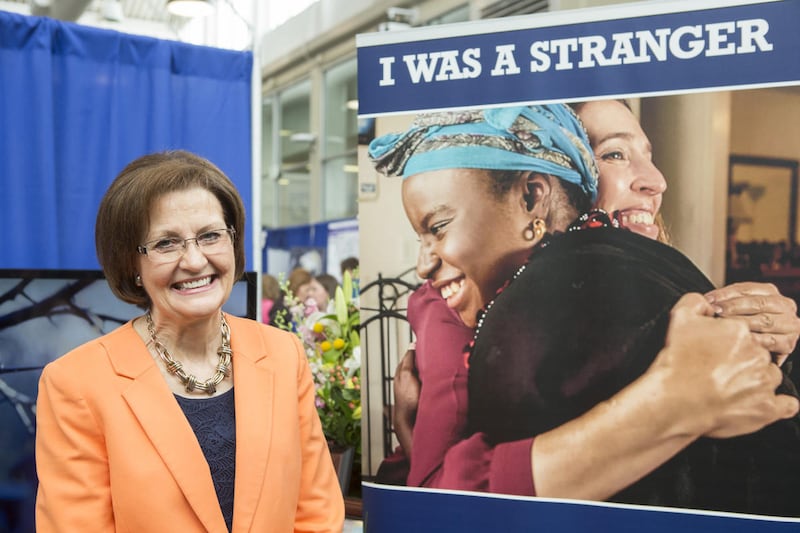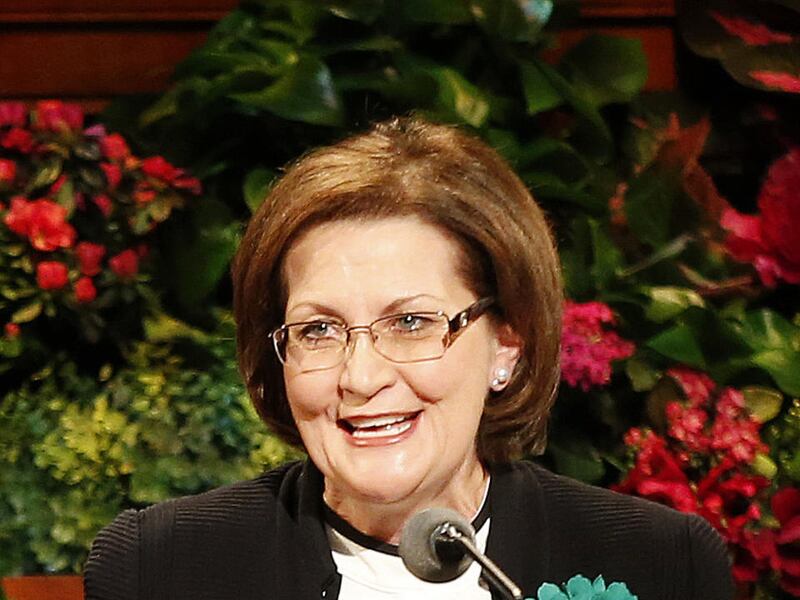The second anniversary of the day the Islamic terrorist group Boko Haram kidnapped 276 girls from a government school in Nigeria was April 14, 2016. After the kidnapping, dozens escaped immediately and 219 girls were missing.
This past May, one of them was found, according to media reports. While many fear the girls’ plight is being ignored, a social media campaign called #BringBackOurGirls was launched to keep pressure on governments to engage in efforts to rescue them, according to recent Associated Press reports.
Since 2003, Iraq’s Christian population has dropped by almost 50 percent, according to the CIA World Factbook. The Islamic State group has played a major role in the decimation of the Christian population in the Middle East because religion is the reason ISIS kills and Christians have become one of their dedicated targets.
“In 2015, ISIS killed and beheaded dozens of kidnapped Egyptian and Ethiopian Christians in Libya as the world watched on YouTube,” the Deseret News reported in December 2015. The article also noted that the Nazarene Fund is dedicated to rescuing Arab Christians and helping them relocate to other countries.
Since the beginning of the civil war in Syria, over 4.8 million refugees have been forced to flee and seek asylum in other countries, according to the United Nations.
In the United States, where welcoming refugees is a hot-button issue, myriad faith groups — Catholic, evangelical Christian, Jewish — have reached out to provide aid to asylum-seekers. Leith Anderson, president of the National Association of Evangelicals, said in a statement on nae.net, “Of course we want to keep terrorists out of our country, but let’s not punish the victims of ISIS for the sins of ISIS.”
These three events make up a very short list indicative of but barely accounting for worldwide crises related to homelessness, warfare, famine, mental and physical health issues, physical and sexual abuse, and human trafficking. Opportunities abound to truly help others and are sometimes as easy as donating small amounts of time or money.
As Sister Linda K. Burton, Relief Society general president of The Church of Jesus Christ of Latter-day Saints, said recently, “There are more than 60 million refugees, including forcibly displaced people, worldwide. Half of those are children. … 'These individuals have undergone tremendous difficulties and are starting over in … new countr(ies) and culture(s). … What they need is a friend and ally who can help them (adjust) to their new home, a person who can help them learn the language, understand the systems and feel connected’” (see “I Was a Stranger,” April 2016).
Commendation to leaders and speakers at the LDS Church’s April 2016 general conference. Many not only implored LDS Church members to reach out — perhaps go outside their comfort zones — and assist those in need, but also announced the creation of the website IWasaStranger.lds.org, where individuals can match themselves and their proclivities with programs and people to whom they can give aid in real and meaningful ways.
Such advocacy is consistent with the teachings of Jesus Christ, his prophets and his followers.
Elder Patrick Kearon, a general authority Seventy, began his conference address by quoting one of the Savior’s parables: “For I was an hungred, and ye gave me meat: I was thirsty, and ye gave me drink: I was a stranger, and ye took me in: Naked, and ye clothed me. … Verily I say unto you, Inasmuch as ye have done it unto one of the least of these my brethren, ye have done it unto me” (see Matthew 25:35-36, 40).
He concluded his inspiring remarks by saying, “Being a refugee may be a defining moment in the lives of those who are refugees, but being a refugee does not define them. Like countless thousands before them, this will be a period — we hope a short period — in their lives. Some of them will go on to be Nobel laureates, public servants, physicians, scientists, musicians, artists, religious leaders and contributors in other fields. Indeed, many of them were these things before they lost everything. This moment does not define them, but our response will help define us” (see “Refuge from the Storm,” April 2016).
Interestingly, service to others not only defines who we are but also has the capacity to establish us as disciples of the Master before whom we all will one day stand and be judged.
In King Benjamin’s masterful sermon to his people, whom he labeled the “children of Christ” (see Mosiah 5:7), he delivered three orations, each offering an example of Christian service. The first model was King Benjamin and his service and devotion to his people (see Mosiah 2).
The second and supreme example was the Savior, Jesus Christ, who spent his life “working mighty miracles … healing the sick, raising the dead, causing the lame to walk, the blind to receive their sight, the deaf to hear, and curing all manner of diseases” (Mosiah 3:5). All these acts pointed to and culminated in his greatest act of service: his Atonement for the sins of all mankind.
The third example was stipulated by King Benjamin for his people. First, they were to serve family members. Then, they were to serve others: “Administer of your substance unto him that standeth in need; and ye will not suffer that the beggar putteth up his petition to you in vain, and turn him out to perish” (see Mosiah 4:16). The king then sharply criticized those who excuse themselves from helping the needy by rationalizing that the needy brought their troubles on themselves, saying, “O man, whosoever doeth this the same hath great cause to repent; and except he repenteth of that which he hath done he perisheth forever, and hath no interest in the kingdom of God” (see Mosiah 4:16-18).
From King Benjamin’s sermon, it can be discerned that acts of selfless service not only establish us as Christians worthy of God’s grace, mercy and love, but also transform us into steadfast disciples who will endure to the end and achieve exaltation.
In "King Benjamin: In the Service of Your God," which is included in the compilation "A Book of Mormon Treasury: Gospel Insights from General Authorities and Religious Educators" (BYU Religious Studies Center, 2003), Susan Easton Black, a retired professor of LDS Church history and doctrine at Brigham Young University, explains, “Christlike service has overtones of the Atonement."
"Only when we lift another’s burden will God lift our own cares," she writes. "It is a holy paradox. The disciples who stagger and even fall because their burdens are too heavy can lighten their burdens by carrying the weight of another’s burden. By so doing, their hearts will be lighter, their lives brighter and their souls greater.”
We will bless others and we will bless ourselves as we seek opportunities and serve, sanctifying ourselves in the process by making our “lives brighter and our souls greater.”
Kristine Frederickson writes on topics that affect members of the LDS Church worldwide in her column “LDS World." She teaches part time at BYU. Her views do not necessarily represent those of BYU. Email: kfrederickson.desnews@gmail.com


